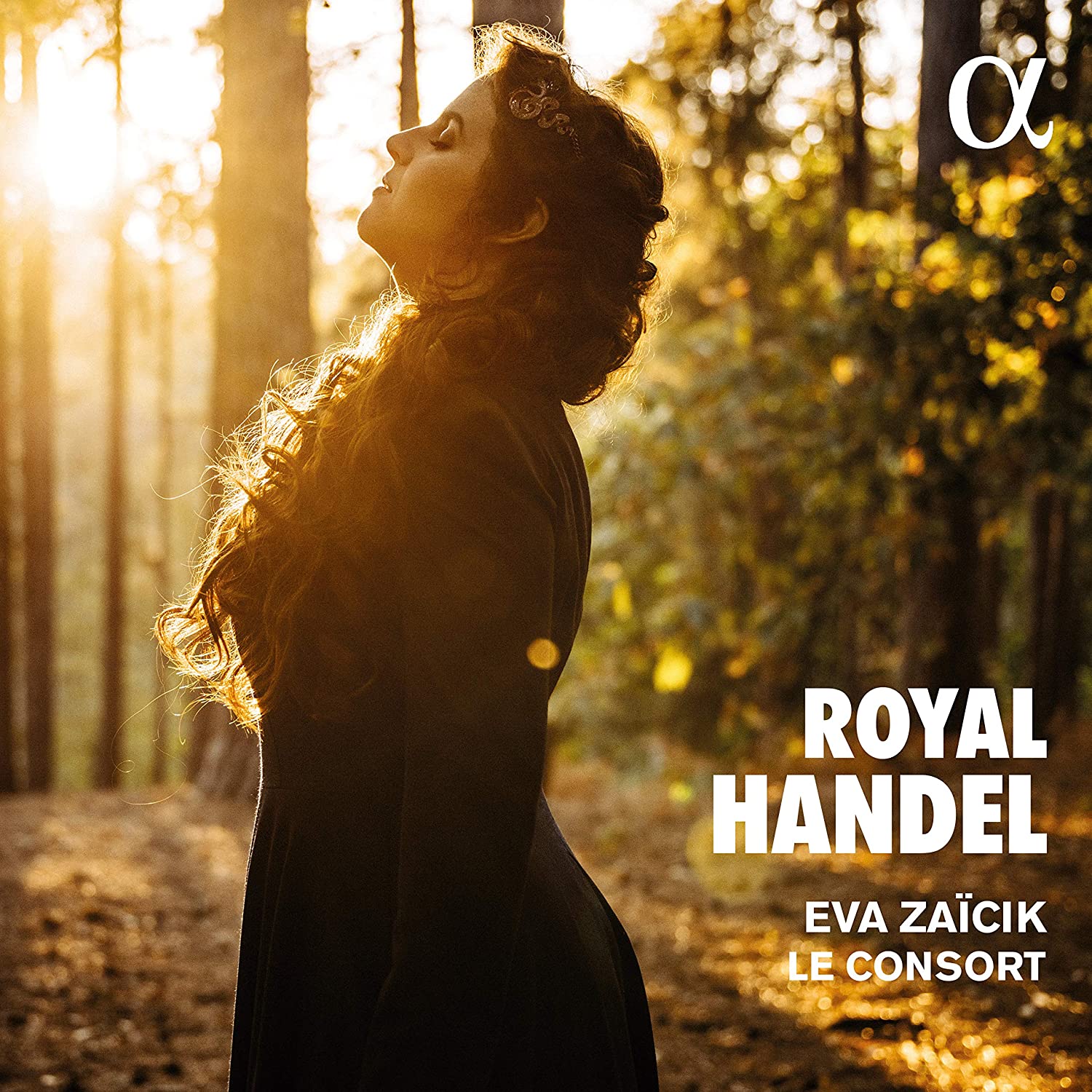Eva Zaïcik mezzo-soprano, Le Consort
64:59
Alpha Classics Alpha 662
+arias by Ariosti and Giovanni Bononcini
Click HERE to buy this on amazon.co.uk
Eva Zaïcik is a young French mezzo whose cv suggests she might have originally had ideas of becoming an early music specialist, but whose more recent work includes a debut as Carmen in Toulouse and appearances in Pique Dame and Eugene Onegin. Having heard this CD my guess is that the latter type of repertoire is more likely to become mainstream for her. In full flow the voice is a richly opulent instrument, with a hint of edge to it in the middle register, which itself does not always sit in comfortable relationship with the soprano register. In Baroque repertoire Zaïcek’s voice is on this evidence at its most beguiling singing mezza voce, where the ear experiences a purity of tone and line not always apparent elsewhere. But in general terms neither her technique nor her approach to the mostly Handel arias on the present CD convince that she is truly at home with it. While there is an admirable flexibility and passaggi are in general well articulated, her approach to ornamentation is haphazard, cadences go unembellished and of course there is no hint of a trill. Not that Zaïcek is alone in that respect. As bad is her approach to text or more accurately non-approach. Contrary to the needs of these arias, the performances seem driven by the desire to make a beautiful, lustrous sound. Aria after aria passes with little attempt to explore its emotional core or meaningfully articulate its text.
In this respect, the singer is hardly aided by her choice of accompanists. Le Consort is one of those small French ensembles bearing no relationship to the size of an average 18th-century opera orchestra. It is also characteristic of so many ensembles today in that Le Concert appears to feel it necessary to play quick music very fast and slower numbers excessively slowly. Thus an aria such as ‘Rompo i lacci’ from Flavio is taken so fast as to render it virtually meaningless, despite some agile passagework from Zaïcek, while the funereal tempo and emasculated rhythm adopted for ‘Ombra cara’ (Radamisto) leaves the aria as little more than a glutinous, sentimental wallow. There are two compensating factors. One is that mezza voce, where the lighter tonal palette can produce exquisite results, nowhere more so than the central section and da capo of ‘Deggio morire’ (Siroe), where criticism is silenced, the listener seduced into luxurious immersion in the sheer beauty of the moment. The other is the inclusion of first recordings of arias by two composers that along with Handel also contributed operas to the first Royal Academy in London (1719-28), the source of the CD’s title. Both Attilio Ariosti and Giovanni Bononcini scored significant successes in its early years and ‘Sagri numi’ from Ariosto’s Caio Marzio Coriolano (1723) is a ravishingly lovely discovery, though as with all the cantabile numbers it is sentimentalized and taken too deliberately.
If the response to this CD is perhaps a little harsh at times, it stems from the depressing regularity with which so many of today’s younger singers seemingly come to Baroque repertoire as a kind of warm-up for bigger, later parts. Such singers need to be taught to recognise that Baroque opera has its own demands that need to be met if they are going to do it more justice than simply winning cheap applause from mainstream critics and audiences.
Brian Robins
